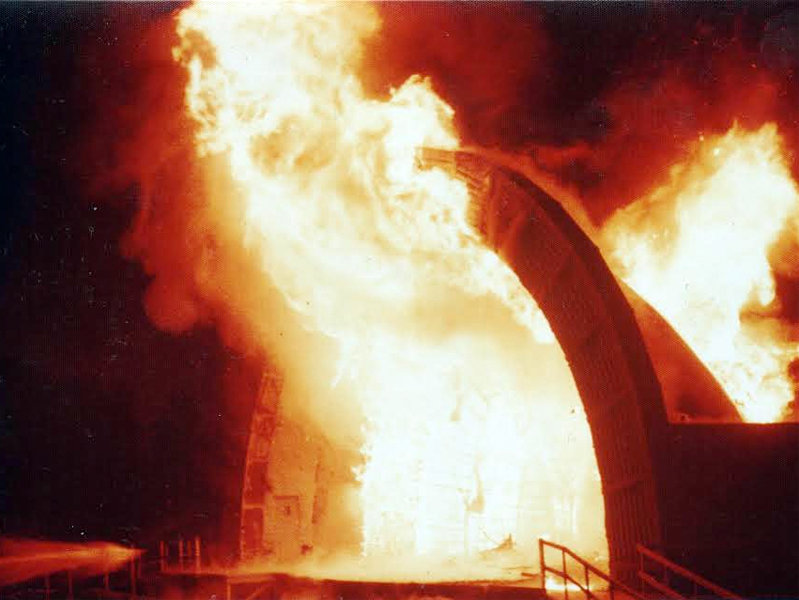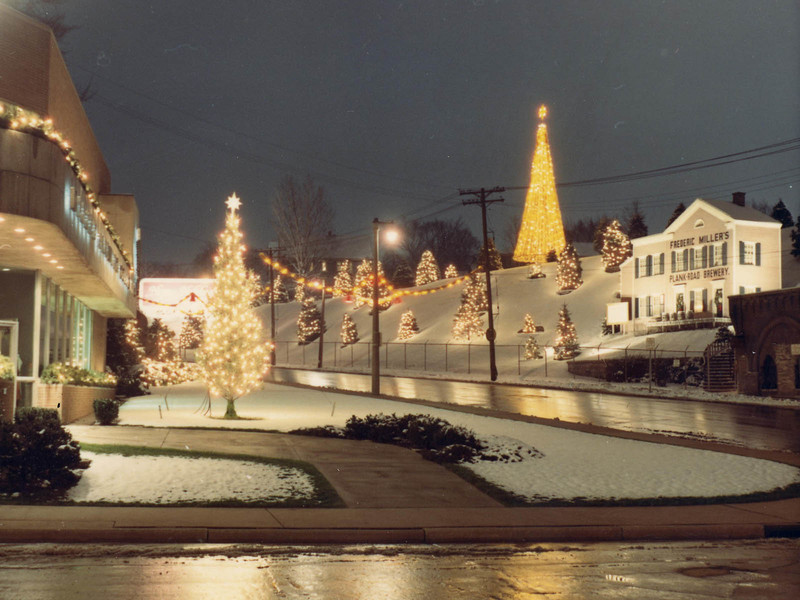In an age when it seems everyone right down to the mailman and the grocer is a political partisan, it's refreshing to see a group like Milwaukee's Public Policy Forum celebrating a century of non-partisan effort to improve the efficiency of local government.
While 100 years' worth of politicians tooted their horns and pushed their agendas, the Public Policy Forum was hard at work helping all of them use tax money more wisely and create policy that benefits everyone.
"The roots of the Public Policy Forum, which was founded in 1913 as the Milwaukee Citizens' Bureau of Municipal Efficiency, trace to both the national "efficiency bureau" movement of the time and the work of Milwaukee Socialists," says local writer Jeff Bentoff, whose new book, "Just the Facts: The 100-Year History of Milwaukee's Public Policy Forum," has just been published by the PPF.
The Citizens' Bureau was preceded by the short-lived Milwaukee Bureau of Economy and Efficiency (MBEE), founded In 1910 by Milwaukee's first Socialist mayor, Emil Seidel and the Socialist-leaning Common Council. That municipal office aimed at scrubbing Milwaukee clean of the corruption that had tainted previous administrations, and at making local government more efficient and effective. When the Socialists lost power in 1912, the MBEE was dissolved by the new mayor.
"Disappointed by the loss of the MBEE, top business titans, with last names like Vogel and Allis, formed a new group to carry on the work of reforming government. In setting up its bureau, they relied on the expertise of the New York Bureau of Municipal Research, one of many 'efficiency bureaus' in the country at the time," says Bentoff, a former newspaper reporter and government official.
"Their new group was a non-profit that was not affiliated with government. And despite three name changes and changing times, it's continued with its key organizing principles intact: Offering independent, unbiased and well-researched advice to help improve government and public policy in the region."
In its 100-year history, the Public Policy Forum (the name was changed in 1987) has issued hundreds and hundreds of reports on everything from the fire department to the schools to playgrounds to the city's asphalt pavements to the city repair shops to street lighting to parks and beyond.
And through it all, the PPF has managed to steer clear of partisanship (though it's safe to say that to partisans, non-partisanship usually looks like rooting for the opposition).
"I was impressed by how completely non-partisan the group is, how its funding sources are diverse and don't influence what the group studies and its conclusions," says Bentoff. "That's very rare in these hyper-partisan times.
"Very few groups of its kind exist that aren't in one ideological camp or another, that aren't at least somewhat influenced by funders or are tied to a university or a similar institution. Very few such independent, free-standing, non-profit research groups exist. Only a handful of groups today trace themselves unbroken back to the efficiency bureau movement, and not all of them are still independent."
Bentoff's 54-page book offers an interesting and extremely readable popular history of the Citizens' Bureau/PPF. The magazine-sized paperback is heavily illustrated with great vintage Milwaukee postcards and photos and pictures of key players and original documents. Despite his working knowledge of the group, Bentoff says the research he undertook after agreeing to Forum President Rob Henken's offer to write the book taught him a lot.
"I had no idea about its history, nor that it was 100 years old," he says. "Despite already knowing about the group in present times, it wasn't until I began my research that I learned about its efficiency bureau and Socialist roots, its well-thought-out founding principles and its influence on almost every policy reform that's occurred in the Milwaukee area in the last 100 years.
"I also hadn't heard about, Paula Lynagh, who was the group's research director for 41 years starting in 1922. She deserves to be recognized as the area's female pioneer in public policy."
After digging deep into the history of the PPF – during an especially politically divided era in Wisconsin politics – does Bentoff think a non-partisan think tank like the PPF is primed to celebrate a bicentennial?
"It (is). Over the years, the group's presidents have worked to shore up its sometimes-shaky finances in part by broadening its membership categories, seeking out-of-state foundation funding and establishing an endowment," he says.
"The Forum is on financial solid ground today. It's biggest fundraising challenge is that some funders prefer to pay for research with groups that mirror their own ideological bents. The Forum hopes that by emphasizing its true independence, funders will see the group as a desired alternative to the left- and right-leaning research groups that exist."
A limited number of print copies for non-members is available by calling the Forum's offices at (414) 276-8240. A digital version of the book is available free as a PDF download.
Born in Brooklyn, N.Y., where he lived until he was 17, Bobby received his BA-Mass Communications from UWM in 1989 and has lived in Walker's Point, Bay View, Enderis Park, South Milwaukee and on the East Side.
He has published three non-fiction books in Italy – including one about an event in Milwaukee history, which was published in the U.S. in autumn 2010. Four more books, all about Milwaukee, have been published by The History Press.
With his most recent band, The Yell Leaders, Bobby released four LPs and had a songs featured in episodes of TV's "Party of Five" and "Dawson's Creek," and films in Japan, South America and the U.S. The Yell Leaders were named the best unsigned band in their region by VH-1 as part of its Rock Across America 1998 Tour. Most recently, the band contributed tracks to a UK vinyl/CD tribute to the Redskins and collaborated on a track with Italian novelist Enrico Remmert.
He's produced three installments of the "OMCD" series of local music compilations for OnMilwaukee.com and in 2007 produced a CD of Italian music and poetry.
In 2005, he was awarded the City of Asti's (Italy) Journalism Prize for his work focusing on that area. He has also won awards from the Milwaukee Press Club.
He has be heard on 88Nine Radio Milwaukee talking about his "Urban Spelunking" series of stories, in that station's most popular podcast.







